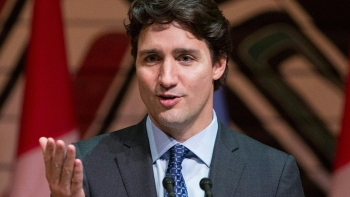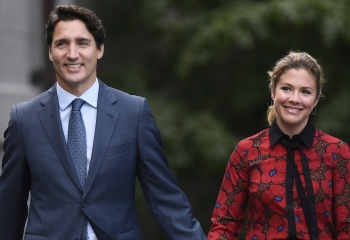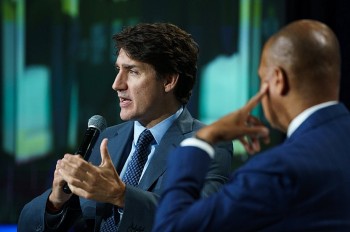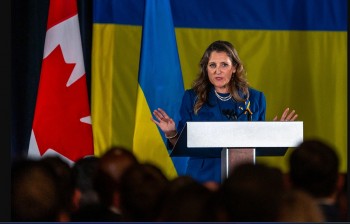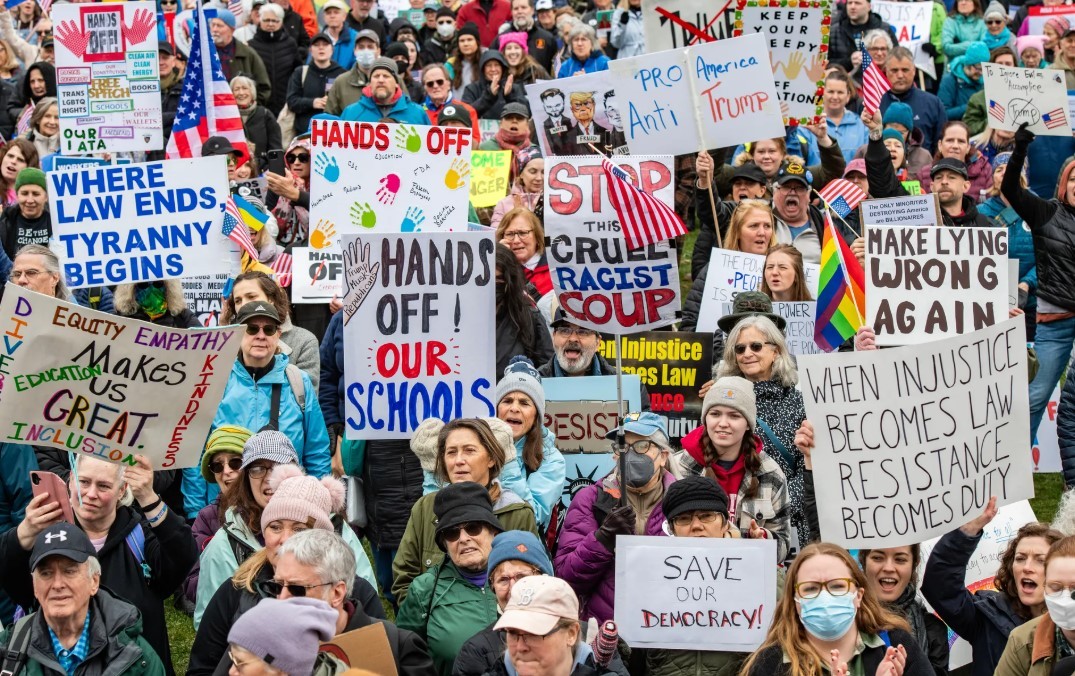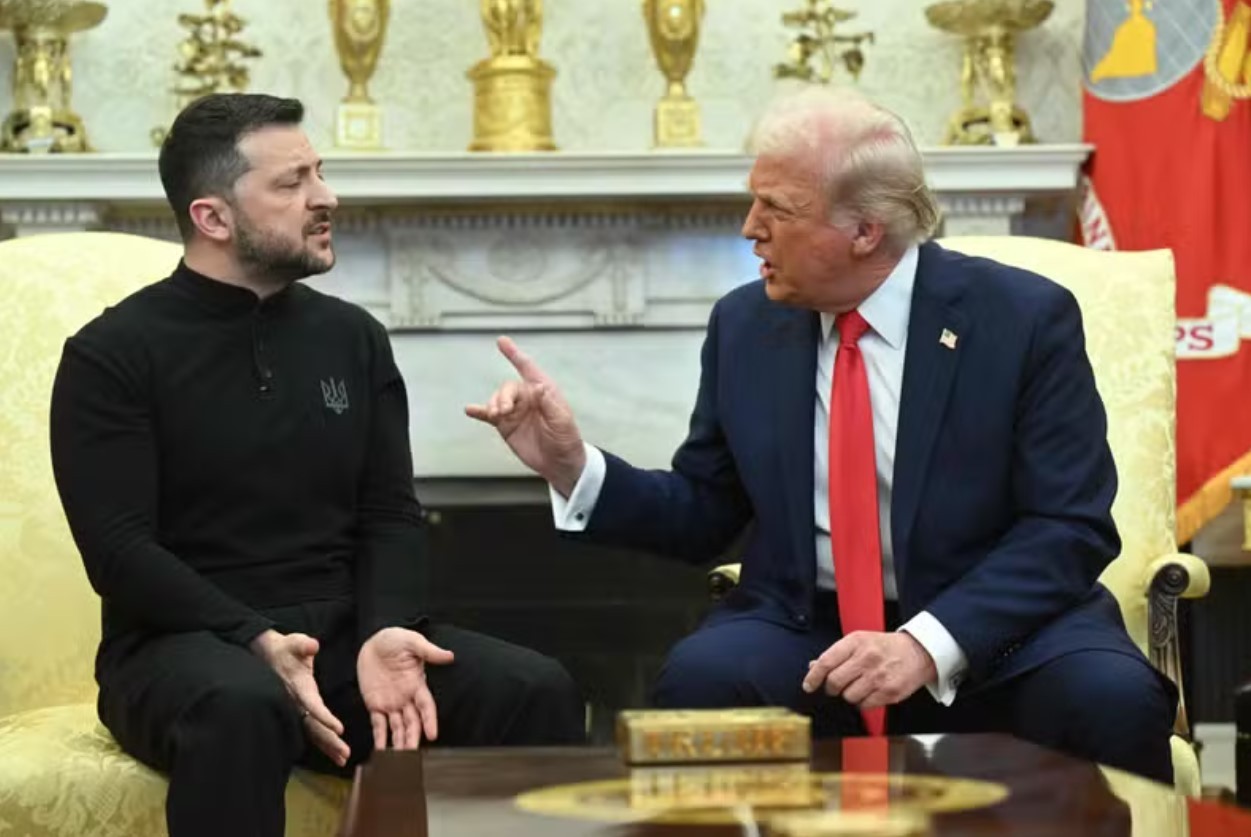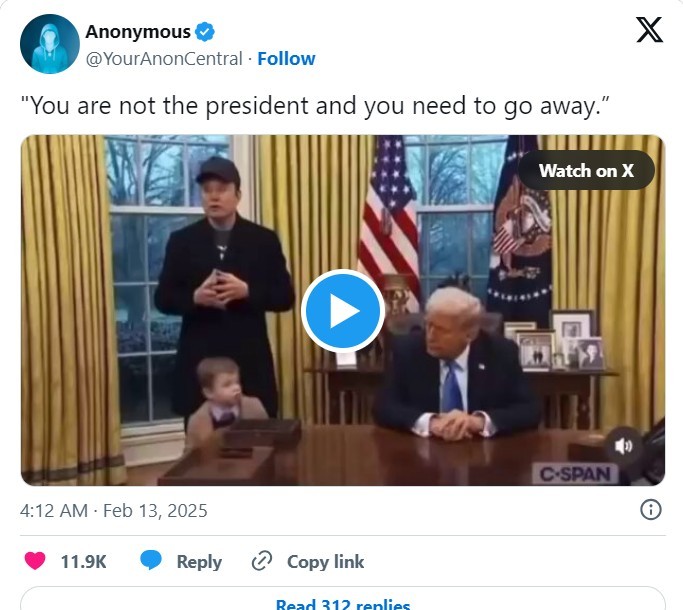Trudeau Resigns, Trump’s Ambitions: Could Canada Become America’s 51st State?
Canada has entered a new political chapter with the resignation of Prime Minister Justin Trudeau. His departure comes amidst growing domestic challenges and shifting global alliances. Meanwhile, former U.S. President Donald Trump’s ambitions remain a focal point in American politics, raising speculation about his potential influence on Canada’s future. Could Canada, a sovereign nation with a proud history, ever become the 51st state of the United States? This question, while provocative, touches on historical ties, economic realities, and political possibilities.
In this article, we explore Trudeau’s resignation, Trump’s geopolitical goals, and the feasibility of Canada’s integration into the U.S. — a scenario that has captured imaginations but remains highly contentious.
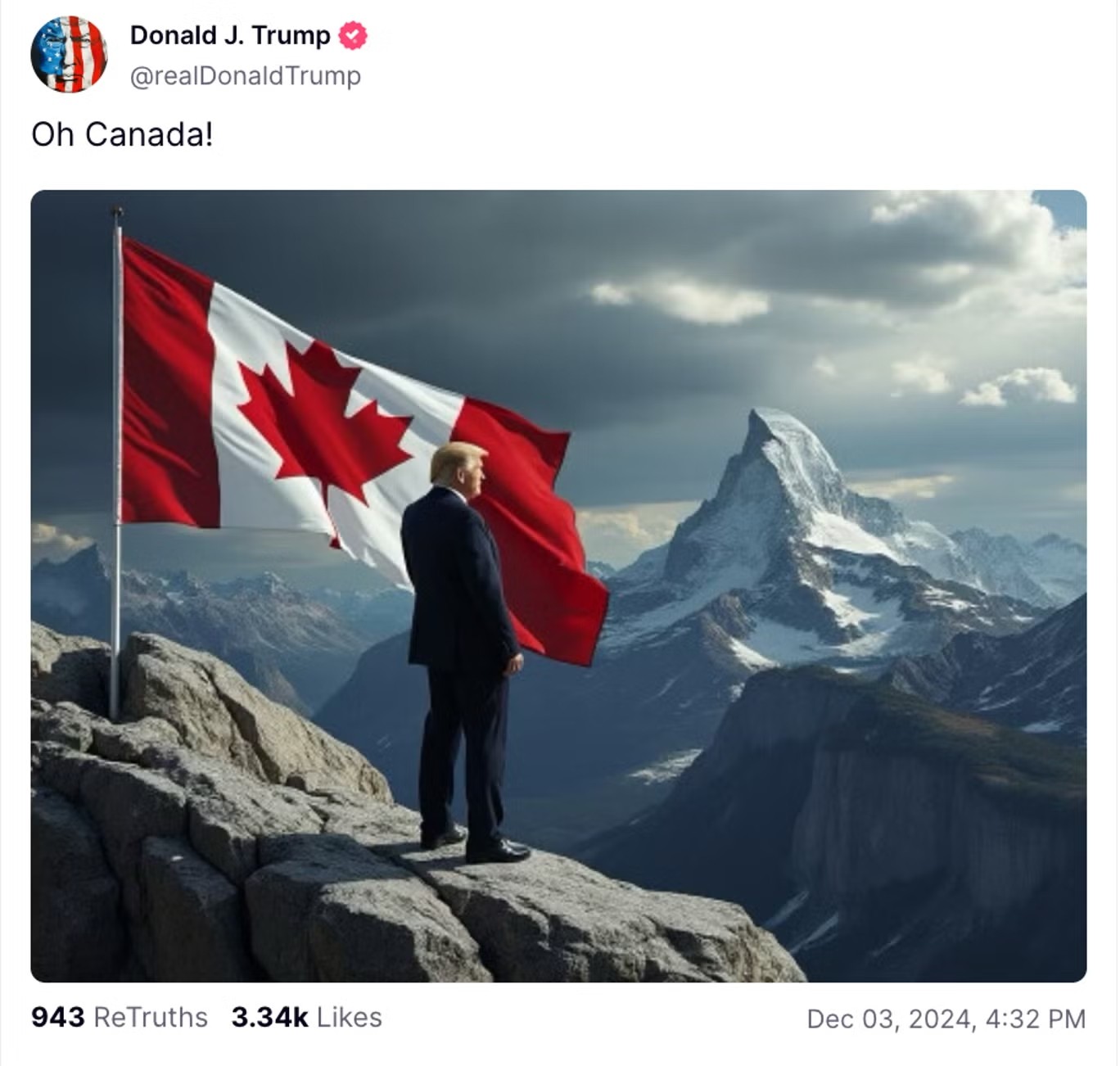 |
| Trump shared a post on his social media platform, Truth Social and said what a great nation it would be if Canada joined as another state of the United States of America. |
Trudeau’s Resignation: A Turning Point for Canada
Justin Trudeau, who served as Canada’s Prime Minister since 2015, announced his resignation citing political fatigue, declining popularity, and mounting challenges. Key reasons behind his departure include:
-
Economic Challenges: Rising inflation, housing crises, and public dissatisfaction with economic policies.
-
Political Scandals: Allegations of unethical conduct during his tenure, including the SNC-Lavalin affair.
-
Declining Popularity: Recent polls showed waning support for Trudeau’s Liberal Party, with the Conservatives gaining momentum.
Trudeau’s resignation leaves Canada at a crossroads, with upcoming elections likely to shape the country’s political landscape for years to come.
Trump’s Ambitions: Implications for Canada
Donald Trump, known for his "America First" policies, has often expressed strong views on North America’s geopolitical alignment. His re-election campaign for 2024 suggests ambitions that could impact U.S.-Canada relations. Key aspects of Trump’s vision include:
-
Economic Integration: Trump has previously criticized NAFTA and pushed for USMCA, emphasizing stronger U.S. economic dominance.
-
Energy Policies: Trump’s focus on energy independence aligns with Canada’s vast natural resources, making integration a potential point of interest.
-
Military Alliances: Trump’s calls for increased defense spending by allies could pressure Canada into closer cooperation with U.S. military strategies.
Historical Context: Canada and the U.S.
While Canada and the U.S. share one of the longest undefended borders in the world, their histories diverge significantly. However, there have been instances where closer integration was considered:
-
Annexation Debates (19th Century): Some American politicians advocated for Canada’s annexation following the U.S. Civil War.
-
Economic Interdependence: The two countries are each other’s largest trading partners, with deep economic ties fostered through NAFTA and USMCA.
-
Cultural Connections: Shared language (English), entertainment industries, and similar lifestyles create a unique bond.
Despite these connections, Canada’s strong sense of national identity and parliamentary democracy have always set it apart.
Could Canada Become the 51st State?
The idea of Canada becoming America’s 51st state is fraught with complexities:
Economic Factors
-
Trade Dependence: Over 70% of Canadian exports go to the U.S., making the economies deeply intertwined.
-
Currency Challenges: Transitioning from the Canadian dollar to the U.S. dollar would face resistance due to national pride and economic adjustments.
-
Resource Control: Canada’s vast natural resources, particularly oil and timber, would become contentious in any integration scenario.
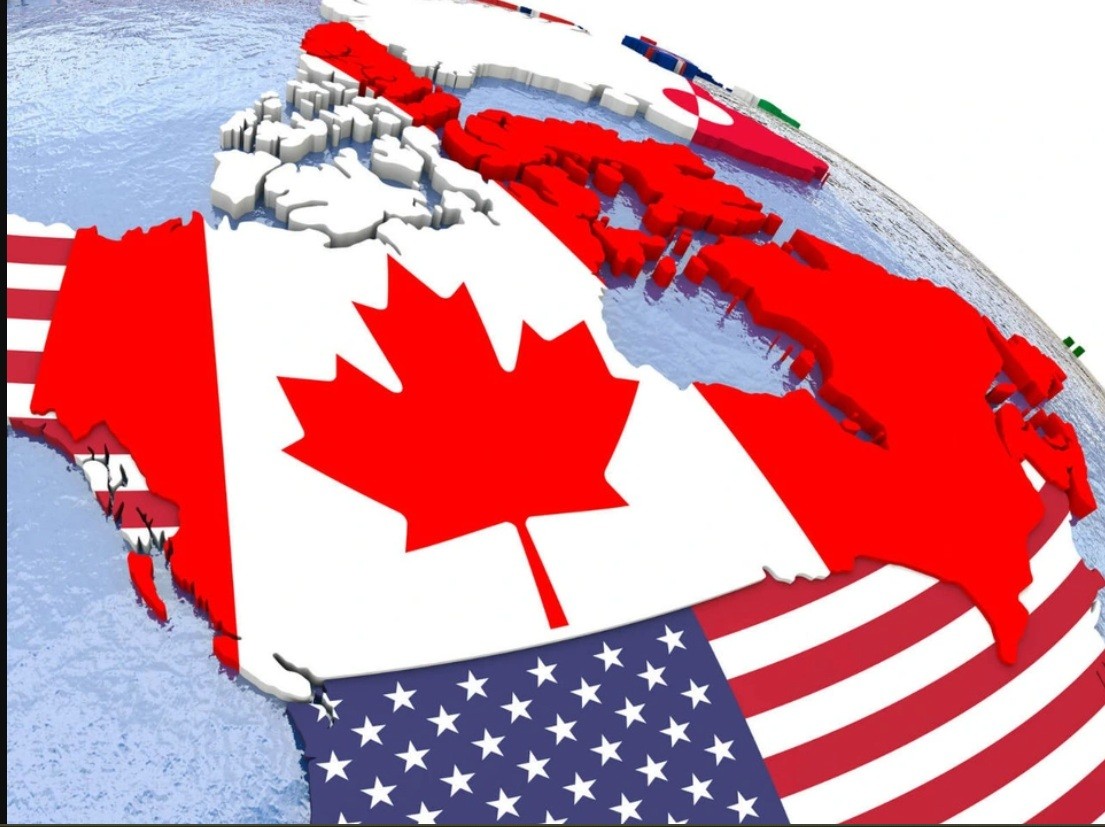 |
| Could Canada Become the 51st State? |
Political Factors
-
Sovereignty: Canada’s parliamentary system and constitutional monarchy differ starkly from the U.S. federal system.
-
Public Sentiment: Polls consistently show Canadians value their independence and distinct identity.
-
International Relations: Canada’s role in global organizations like the Commonwealth would be jeopardized.
Legal and Constitutional Hurdles
Annexation would require:
-
Approval by Canadian Parliament and provincial legislatures.
-
A referendum showing majority support among Canadians.
-
Amendments to the U.S. Constitution, requiring approval by Congress and state legislatures.
Trump’s Role in Hypothetical Integration
If Trump were to push for closer ties with Canada, his approach might include:
-
Economic Leverage: Using trade agreements and tariffs to incentivize cooperation.
-
Military Collaboration: Increasing joint defense initiatives under NORAD.
-
Political Influence: Encouraging pro-American sentiment through diplomatic channels and media campaigns.
However, such efforts would likely face strong opposition from Canadian leaders and citizens.
| While Justin Trudeau’s resignation and Donald Trump’s ambitions have reignited discussions about U.S.-Canada relations, the idea of Canada becoming the 51st state remains speculative at best. The two nations, though deeply connected, value their independence and distinct political systems. Any move toward integration would face significant legal, political, and cultural obstacles. |
FAQs
1. Why did Justin Trudeau resign? Trudeau stepped down due to declining popularity, economic challenges, and political fatigue after nearly a decade in office.
2. Has Canada ever considered joining the U.S.? While there have been historical debates, Canada has always maintained its sovereignty and independence.
3. What are Donald Trump’s views on Canada? Trump has emphasized stronger U.S. economic and defense ties with Canada but has not explicitly advocated for annexation.
4. How would Canada’s annexation impact its provinces? Provinces like Quebec, with strong regional identities, would likely resist integration, creating significant political hurdles.
5. What are the economic implications of integration? While trade and resource management could become more streamlined, Canada’s economy would face challenges adapting to U.S. policies.
6. Could Canadians vote in U.S. elections if annexed? If annexed, Canadians would gain U.S. citizenship, allowing them to vote in federal elections.
7. Would Canada’s healthcare system survive annexation? The U.S. system’s privatized approach contrasts with Canada’s public healthcare, making integration challenging.
8. How do Canadians feel about the U.S.? While Canadians generally view the U.S. positively, they value their independence and cultural differences.
9. Could Trump influence Canada’s political future? Trump’s influence is limited to diplomatic and economic channels; Canada’s political decisions remain sovereign.
10. Is Trudeau’s resignation linked to U.S. politics? No direct link exists, but his departure adds uncertainty to U.S.-Canada relations at a critical time.

